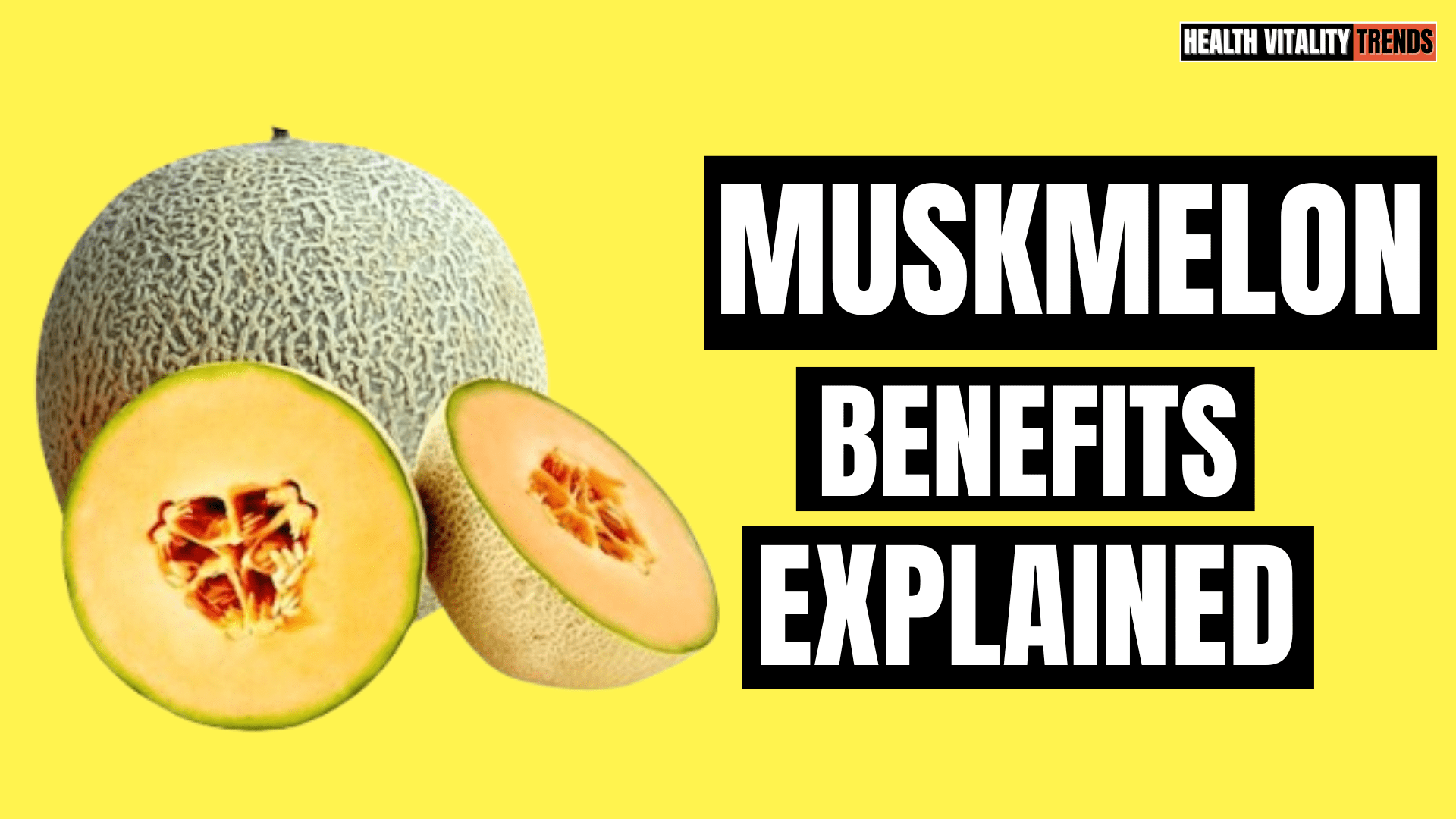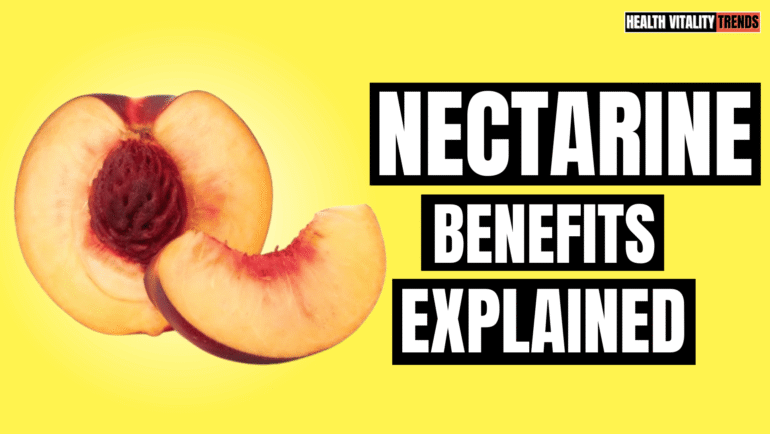
MUSKMELON (Cantaloupe): Low-Sugar Hydration & Aging Skin Benefits
Muskmelon, also known as Cantaloupe, is a refreshing summer fruit that is known for its sweet taste and hydrating nature. It is packed with vitamin C, vitamin A, antioxidants, and water.
All these nutritional qualities of a muskmelon provide you with stronger immunity, which keeps your body safe from seasonal diseases.
The natural cooling property of the fruit makes it a favorite, especially in places with hot climates, while its rich nutrient profile provides both short-term refreshment and long-term health benefits.
Let’s explore what makes muskmelon so special, understand its nutrition profile, and the healthiest ways to enjoy it.
What is Muskmelon?
Muskmelon (Cucumis melo)[1] is a member of the gourd family, related to cucumbers and pumpkins. The most common variety out of all is cantaloupe, which can be easily recognized by its netted rind and orange flesh.
While it is native to Persia and Africa, muskmelon is now grown worldwide, especially in India, the United States, and Europe.
In traditional Indian Ayurveda, muskmelon is prized for its cooling effect on the body, often recommended during hot summers to prevent dehydration.

What Does Muskmelon Taste Like?
If you are eating a ripe muskmelon, it has a juicy texture with a sweet taste and a mildly floral flavor.
In comparison with pineapple, the taste is less tangy, but it’s not as rich as a mango, making it a gentle and refreshing option.
And if the fruit is eaten unripe, it may taste bland (tasteless) or bitter. The sweetness and aroma of the fruit peak when it’s fully ripe, making it perfect to include in fruit salads, smoothies, or even when eaten raw.
Muskmelon Nutrition Facts
Here’s the nutritional profile of 1 cup of diced muskmelon (about 160 g), based on USDA[2] data:
| Nutrient | Amount |
|---|---|
| Calories | 54 kcal |
| Carbohydrates | 13 g |
| Dietary Fiber | 1.4 g |
| Sugars | 12 g |
| Protein | 1.3 g |
| Fat | 0.3 g |
| Vitamin C | 58 mg (65% DV) |
| Vitamin A (as beta-carotene) | 5,411 IU (108% DV) |
| Potassium | 427 mg (12% DV) |
| Folate (B9) | 37 mcg (9% DV) |
| Water Content | ~90% |
Explanation: Muskmelon is low in calories and high in water, making it an excellent hydrating fruit. Its standout nutrients are vitamin A (important for eye health) and vitamin C (crucial for immunity and skin). The combination of potassium and antioxidants also supports long-term heart health.
Health Benefits of Muskmelon
1. Hydration and Cooling Effect – With nearly 90% water content, muskmelon prevents dehydration and heat exhaustion during hot weather.
2. Boosts Immunity – High vitamin C levels strengthen the immune system and improve your body’s ability to fight infections (NIH)[3].
3. Supports Eye Health – Being rich in beta-carotene, muskmelon improves your eye vision and may lower the risk of age-related macular degeneration (PubMed)[4].
4. Promotes Healthy Skin – The antioxidants, vitamin C, and hydration from the fruit support collagen formation. Improving skin elasticity (Harvard Health).
5. Aids Digestion – The fiber content of the fruit helps to regulate bowel movements and promotes gut health, which is also useful in a fat-loss diet plan.
6. Heart Health Protection – Potassium helps to regulate blood pressure, while antioxidants from the fruit reduce oxidative stress, thus lowering the risk of cardiovascular problems.
How to eat Muskmelon
- Fresh: Take a ripe fruit. Cut it into cubes or slices, or cut it into long pieces like a watermelon.
- Smoothies & Juices: Blend the chopped pieces with lemon or mint for a refreshing drink.
- Fruit Salads: Pair with watermelon, pineapple, papaya, or grapes.
- Desserts: Use in puddings, ice creams, or chilled soups.
- Seeds: Roasted muskmelon seeds are a popular snack in India, which is known for being rich in protein.
Fun Fact: In many Indian households, muskmelon seeds are dried and stored for use in traditional sweets and gravies, highlighting the fruit’s cultural and culinary value.
How to Store Muskmelon to Keep It Fresh
- Avoid Moisture Exposure: Always keep cut fruit covered to prevent bacterial contamination.
- Whole Fruit: Keep at room temperature until ripe, then refrigerate.
- Cut Muskmelon: Store in an airtight container in the fridge; consume within 2–3 days.
- Freezing: Can be frozen as cubes for smoothies, though the texture may soften after thawing.

Possible Side Effects and Precautions
- Digestive Upset – Eating excessive muskmelon may cause bloating or diarrhea due to high water and fiber content.
- Blood Sugar Impact – Although muskmelon has a low glycemic load, excessive intake may slightly raise blood sugar.
- Foodborne Illness Risk – Like other melons, muskmelons can harbor bacteria on their skin if not washed properly (CDC).
Precautions
- Diabetics: Best consumed in moderation and paired with protein or fiber-rich foods.
- Pregnant Women: Should only eat washed and ripe melons.
- Kidney Patients: Should monitor their potassium intake, as muskmelon is moderately rich in potassium.
- Storage Hygiene: Wash the outer rind (thick skin) thoroughly before slicing to prevent contamination.
Fruits Similar to Muskmelon
- Watermelon – Similar hydrating quality with higher water content.
- Honeydew Melon – Close cousin with a paler, less sweet flesh.
- Papaya – Tropical fruit with similar vitamin A and digestive benefits.
- Pumpkin – From the same gourd family, though usually eaten cooked.
Common FAQs About Muskmelon
Q1: Can I eat muskmelon at night?
Yes, muskmelon is light and easy to digest, but some people may prefer it earlier in the evening to avoid excess water intake before bed.
Q2: Is muskmelon good for weight loss?
Yes. Low in calories and high in water, muskmelon helps you feel full without adding excess calories.
Q3: Can diabetics eat muskmelon?
Yes, in moderation. Its glycemic load is low, making it safer than high-sugar fruits.
Q4: How can I tell if a muskmelon is ripe?
A ripe muskmelon has a sweet aroma, yields slightly to pressure at the stem end, and has a golden-tan rind under the netting.
Conclusion
Muskmelon (cantaloupe) is a hydrating, nutrient-rich fruit that not only refreshes in the short term but also supports immunity, vision, skin, and heart health over time. With its sweet flavor and versatility in recipes, it’s an excellent choice for summer snacking or healthy desserts. Including muskmelon in your diet is a delicious way to stay cool and nourished naturally.




